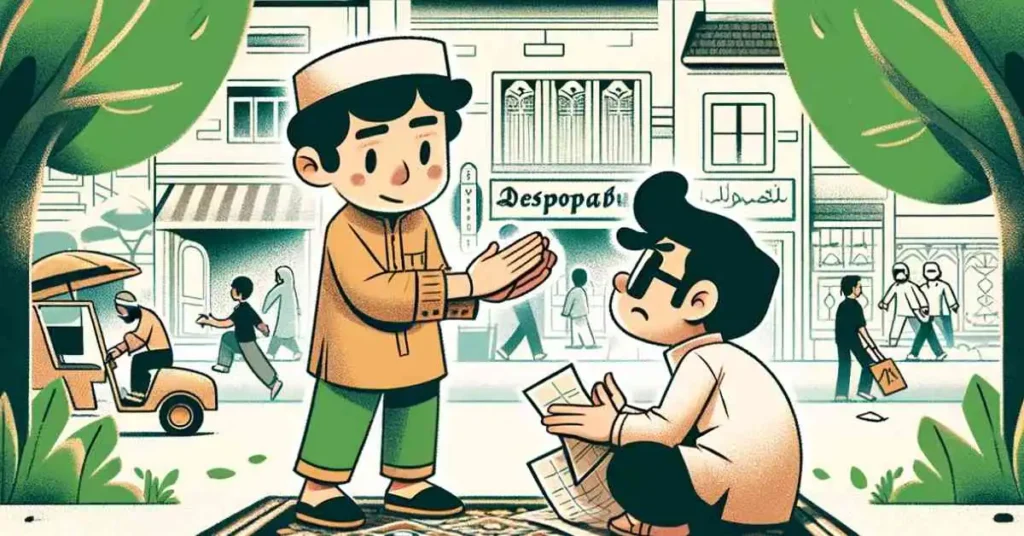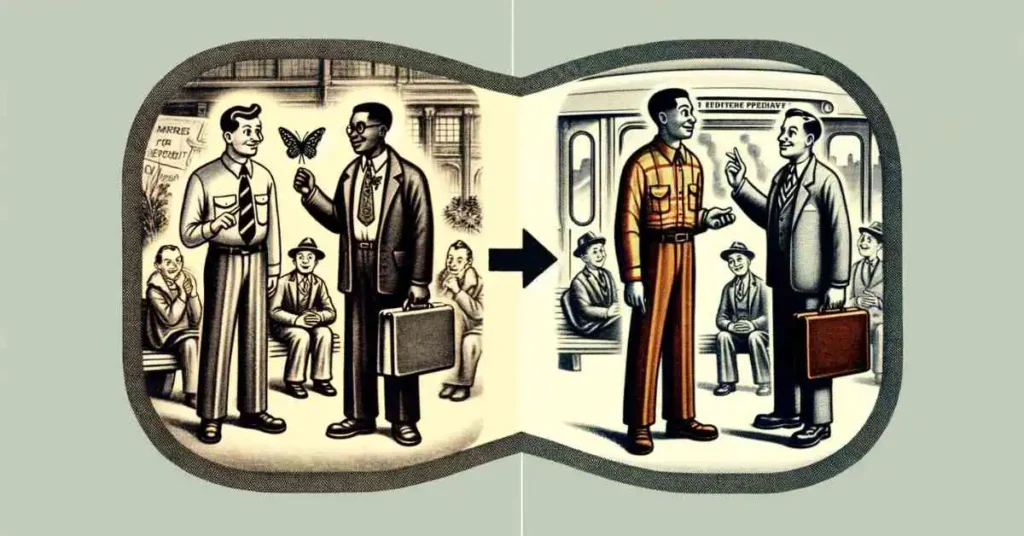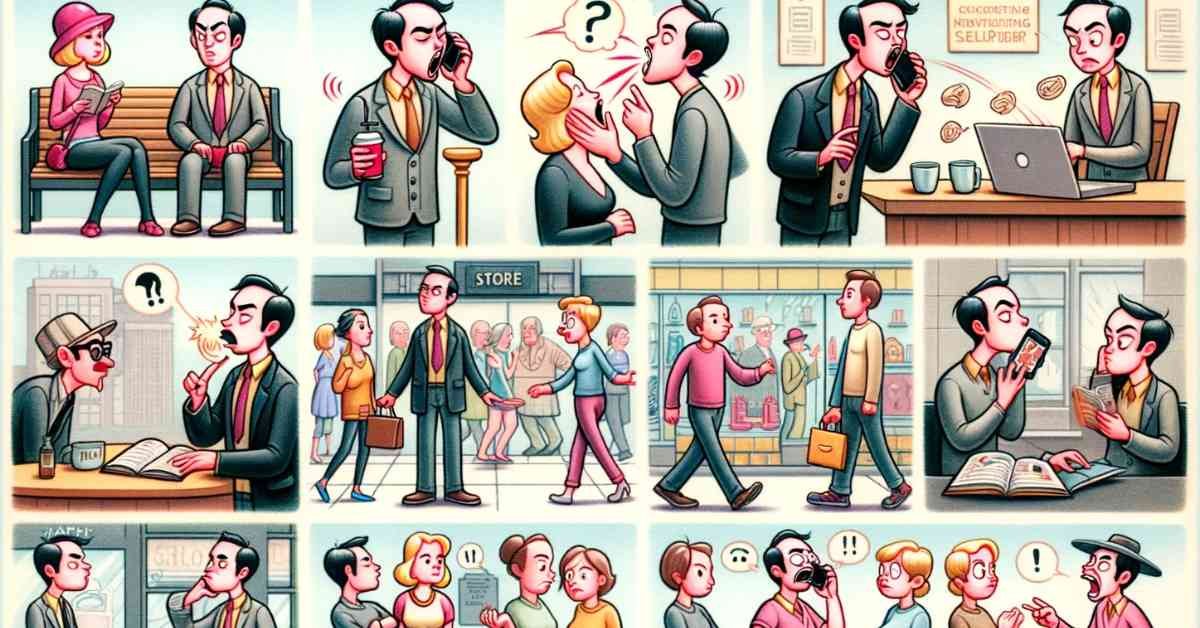Have you ever said something rude without meaning to? Maybe you were having a bad day or weren’t thinking. We all make mistakes like this sometimes, and it can hurt people’s feelings or make them feel bad. But saying sorry can help fix things. When we say sorry for being rude, it shows we know we did something wrong, and we feel bad about it. It also helps make our friendships and relationships strong again.
“Being kind is more important than being right.”
– Unknown
In this post, we’re going to share lots of ways to say sorry for being rude. It doesn’t matter if it is small or big; it’s important to say sorry the right way. These sorry messages for rude behavior are here to help you say sorry and show you want to do better next time. Let’s learn how to apologize in a way that can help fix any hurt feelings and make things better with our friends and family.
- Apologies for Insensitive Comments or Remarks
- Apologies for Disrespectful Actions or Disruptive Behavior
- Apologies for Lack of Politeness or Consideration
- Owning Up to Mistakes and Accepting responsibility
- Outlining Steps for Improvement and Behavioral Change
- Seeking Forgiveness and Reconciling Relationships
You Might Also Like:
- SORRY MESSAGES FOR MISUNDERSTANDINGS
- SORRY MESSAGES FOR LATE DELIVERIES
- SORRY MESSAGES FOR MISSED APPOINTMENTS
Apologies for Insensitive Comments or Remarks

Saying something insensitive can hurt people, even if we didn’t mean to. Here are 10+ ways to say sorry for making a hurtful comment or joke:
“I’m sorry for the insensitive comment I made. I now realize how hurtful it could have been and regret it deeply. I promise to be more thoughtful with my words.”
“I apologize for my hurtful remark. It was thoughtless and offensive, and I’m truly sorry for any pain I caused.”
“I regret making that offensive joke. It was inappropriate and not funny at all. I understand the hurt it caused, and I am sorry.”
“I’m sorry for the insensitive words I said. I didn’t consider how they might affect you, and I promise to be more considerate in the future.”
“I apologize for my careless comment. It was wrong, and I feel terrible for hurting you. I’m committed to being more sensitive with my words.”
“I’m truly sorry for the hurtful thing I said. I spoke without thinking, and I deeply regret it. I’ll work on being more empathetic and careful with my language.”
“I regret the insensitive joke I made. It was in poor taste, and I understand now how offensive it was. I’m sorry, and avoid making such remarks in the future.”
“I apologize for my thoughtless words. They were hurtful, and I’m sorry for any pain I caused. I promise to speak more kindly from now on.”
“I’m sorry for making that remark. It was insensitive, and I understand why it was hurtful. I’ll be more mindful of how I express myself.”
“I deeply regret my insensitive comment. It was wrong, and I’m sorry for the hurt it caused. I’ll make sure to think before I speak in the future.”
“I’m sorry for the offensive words I used. They were inappropriate, and I understand the impact they had. I’ll strive to be more respectful and considerate.”
In these apologies, acknowledging the impact of your words, expressing genuine regret for the hurt caused, and showing a commitment to being more sensitive and considerate in the future is key to mending the hurt and restoring relationships.
Apologies for Disrespectful Actions or Disruptive Behavior

Disrespectful actions can hurt others and disrupt relationships. Here are 10+ ways to apologize for such behavior:
“I apologize for interrupting you during our conversation. It was disrespectful, and I regret not giving you the attention you deserved. I promise to listen more attentively in the future.”
“I’m sorry for my dismissive gestures. They were inappropriate and disrespectful. I understand the impact they had, and I’ll be more considerate and respectful moving forward.”
“I regret any disruptive behavior I displayed. It was thoughtless, and I’m sorry for any inconvenience I caused. I’m committed to acting more respectfully.”
“I apologize for not showing you the respect you deserve. My actions were wrong, and I understand they were hurtful. I’ll work on being more mindful and respectful.”
“I’m truly sorry for acting disruptively. It was inconsiderate, and I regret any offense or inconvenience I caused. I’ll strive to behave more appropriately.”
“I’m sorry for my disrespectful actions. I understand how they were inappropriate and am committed to treating you and others with more respect.”
“I apologize for any rudeness in my behavior. I did not intend to be disrespectful, and I regret the hurt it caused. I’ll be more aware of my actions in the future.”
“I regret my thoughtless behavior that disrupted our time together. I’m sorry for any annoyance it caused, and I’ll make sure to be more respectful and considerate.”
“I’m sorry for not respecting your space and opinions. My actions were out of line, and I understand the impact they had. I’ll be more respectful moving forward.”
“I apologize for my impolite actions. They were uncalled for, and I regret any discomfort I caused. I promise to be more courteous and respectful.”
“I’m sorry for any actions of mine that came across as disrespectful. I did not intend to offend, and I’ll work on being more considerate and understanding.”
In these apologies, acknowledging the disrespectful nature of your actions, expressing genuine regret for the inconvenience or offense caused, and showing a commitment to treating others with more respect and consideration are crucial in repairing relationships and building mutual respect.
Apologies for Lack of Politeness or Consideration

Not being polite or considerate can lead to rudeness, which can make others feel uncomfortable. Here are 10+ ways to apologize for such behavior:
“I apologize for my lack of politeness recently. I was wrong to neglect basic courtesy, and I regret any discomfort I caused. I promise to be more mindful and considerate in the future.”
“I’m sorry for failing to show you the proper courtesy. It was inconsiderate, and I regret any inconvenience I might have caused.”
“I regret not being more polite and considerate. It was thoughtless of me, and I’m sorry for any awkwardness or discomfort it led to. I’ll work on being more respectful in my interactions.”
“I apologize for overlooking social etiquette. My behavior was inappropriate, and I understand the impact it had. I’ll make sure to be more considerate and well-mannered.”
“I’m sorry for not being as courteous as I should be. It wasn’t intentional, but I see now that it was inconsiderate, and I’ll strive to be more thoughtful in the future.”
“I regret any rudeness in my actions. It was thoughtless, and I’m sorry for any discomfort it caused. I’m committed to practicing better manners and consideration.”
“I apologize for my lack of consideration. I should have been more aware of my behavior, and I’m sorry for any inconvenience or discomfort it caused.”
“I’m sorry for not being more polite in our interactions. I did not intend to be rude, and I’ll work on being more respectful and mindful of others.”
“I regret not showing you the courtesy you deserve. It was an oversight on my part, and I’m sorry for any awkwardness it caused. I’ll be more thoughtful in the future.”
“I apologize for my inconsiderate behavior. It was not appropriate, and I understand the impact it had. I’ll focus on being more polite and respectful.”
“I’m sorry for any moments where I lacked politeness. It was unintentional, but I realize now that it was wrong, and I’ll make sure to be more considerate and respectful.”
In these apologies, acknowledging the inconsiderate behavior, expressing regret for any discomfort or inconvenience caused, and committing to being more polite and considerate is key to repairing relationships and improving interactions with others.
Owning Up to Mistakes and Accepting responsibility

Admitting when we’re wrong and taking responsibility for our actions are crucial steps in personal growth. Here’s how to acknowledge your mistakes and accept their impact:
“I realize the importance of owning up to my mistakes. I accept full responsibility for my rude behavior and the impact it had. I’m committed to learning from this and growing as a person.”
“I acknowledge that I was wrong in my actions. I’m willing to take responsibility for the hurt I caused and am dedicated to making amends.”
“I understand that accepting responsibility for my actions is crucial. I regret my rudeness and the discomfort it caused, and I am committed to doing better in the future.”
“I know I need to own up to my mistakes. I’m sorry for my behavior and the impact it had on you. I’m taking steps to ensure it doesn’t happen again.”
“I recognize that I was at fault and take full responsibility for my actions. I’m committed to self-reflection and improving my behavior.”
“I accept that my actions were inappropriate and take responsibility for the hurt they caused. I’m dedicated to learning from this experience.”
“I understand the need to own my mistakes. I apologize for my rude behavior and any hurt it caused, and I’m working on being more considerate.”
“I acknowledge that I was wrong in my behavior. I’m committed to understanding why it happened and ensuring it doesn’t occur again.”
“I realize that taking responsibility for my actions is the first step towards making things right. I’m sorry for the way I acted and am focused on improving myself.”
“I accept that my actions were hurtful and take responsibility for them. I’m committed to personal growth and being more respectful in the future.”
“I know that owning up to my mistakes is important. I apologize for my rude behavior and am taking steps to learn from this and be better.”
In these apologies, it’s important to emphasize the significance of personal accountability, express your willingness to accept responsibility for your actions and show commitment to self-reflection and personal growth. This approach demonstrates sincerity and a dedication to improving yourself and your relationships.
Outlining Steps for Improvement and Behavioral Change

Making a real change in behavior requires specific actions and a commitment to growth. Here are ways to express your dedication to improving and changing your behavior:
“I’m actively working on practicing better listening skills. This includes giving full attention to others when they speak and not interrupting.”
“I’m committed to developing greater empathy. I’m trying to put myself in others’ shoes more often to understand their perspectives and feelings.”
“I’ve started to cultivate more self-awareness about my actions and their impacts. This involves regularly reflecting on my behavior and seeking feedback.”
“I’m practicing mindfulness to be more aware of my words and actions in the moment. This helps me consider how what I say or do affects others.”
“I’m learning from my mistakes by attending communication and interpersonal skills workshops to improve how I interact with others.”
“I’ve begun keeping a journal to reflect on my daily interactions and identify patterns in my behavior that I need to change.”
“I’m making an effort to pause and think before I speak or act to ensure my words and actions are considerate and respectful.”
“I’m seeking guidance from mentors and counselors to help me understand and change the behaviors that led to my rude actions.”
“I’m dedicating myself to ongoing personal development, including reading books and attending seminars on effective communication and emotional intelligence.”
“I’m engaging in regular self-reflection to understand the root causes of my behavior and to develop strategies to respond more positively in the future.”
“I’m making a conscious effort to apologize immediately when I realize I’ve been rude or inconsiderate as part of my commitment to change.”
In these messages, outlining specific actions you are taking to improve your behavior, showing your commitment to mindfulness and empathy, and emphasizing your willingness to learn from your mistakes are key. These steps demonstrate that you are actively working on behavioral change and are committed to positively impacting your relationships.
Seeking Forgiveness and Reconciling Relationships

Asking for Forgiveness is critical in healing relationships damaged by rude behavior. Here’s how to express your desire to make amends and rebuild trust:
“I recognize how crucial Forgiveness is in mending our relationship. I sincerely seek your Forgiveness for my past behavior and am committed to making things right.”
“I am asking for your Forgiveness for the rudeness I displayed. It’s important to me that we restore our relationship, and I’m willing to work hard to rebuild your trust.”
“I understand that my actions have hurt our relationship. I sincerely apologize and hope you can forgive me. I’m dedicated to improving and showing you that I’ve changed through my actions.”
“Seeking your Forgiveness is my first step towards repairing what I’ve damaged. I’m truly sorry and am committed to positive changes that will help rebuild our trust.”
“I hope you can forgive my past rude behavior. Forgiveness is key to us moving forward, and I promise to demonstrate through my actions that I am worthy of your trust.”
“I am asking for a chance to make amends for my inconsiderate actions. Your Forgiveness would mean a lot to me, and I pledge to be more respectful and kind in the future.”
“I seek your Forgiveness for my past mistakes. I understand this is essential for healing our relationship, and I’m ready to take whatever steps necessary to regain your trust.”
“Forgiveness is important in healing the hurt I’ve caused. I humbly ask for your Forgiveness and the opportunity to prove that I can be better.”
“I sincerely ask for your Forgiveness for my rude behavior. I value our relationship greatly and am committed to actions that show my respect and consideration for you.”
“I am hopeful that you can forgive me for my past actions. I understand that rebuilding trust takes time, and I’m ready to put in the effort to restore our relationship.”
“Forgiveness can help us move past this difficult time. I’m genuinely sorry for how I behaved and hope you can forgive me as I work towards becoming a better person.”
In these apologies, emphasizing the importance of Forgiveness in repairing relationships, expressing a sincere desire for Forgiveness, and demonstrating a willingness to make amends and rebuild trust are essential for reconciling and strengthening your relationships.
Closing Notes

Being really honest, knowing yourself, and wanting to change is super important when you’ve been rude. It’s all about saying sorry for real, knowing what you did wrong, and trying to be better with people.
We’ve talked about lots of ways to say sorry for rude behavior. Whether it was a small thing or a big deal, saying sorry the right way is really important. We hope these sorry messages help you if you ever need to make things right after being rude. Remember, it’s important to admit your mistakes, apologize, and work on being nicer.
Thanks for checking out these apologies. We hope this post helps you if you’ve been rude and need to say sorry. Let’s all keep trying to be kinder and better people, always working on how we treat others.









